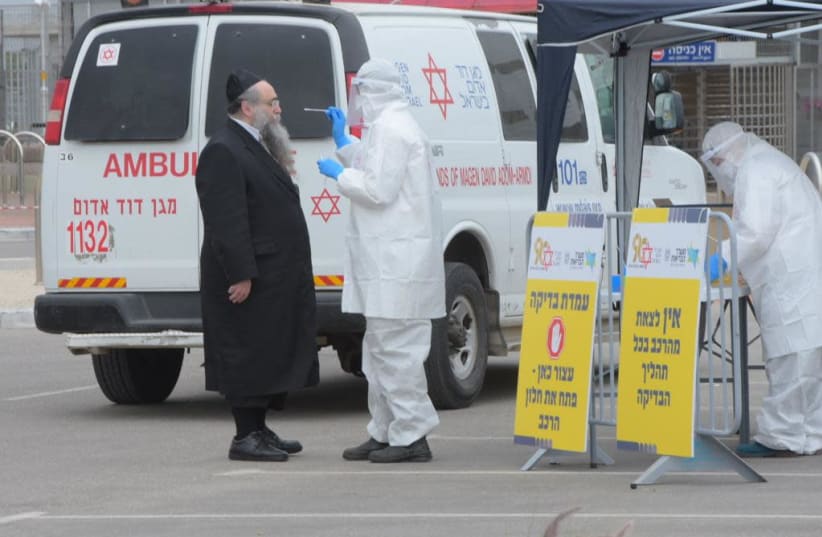Compare this to Jerusalem: The capital's 900,000 residents have 916 cases of coronavirus, an increase of 15% from the day before.
In contrast, Tel Aviv-Jaffa, Petah Tikva and Haifa have all begun to stabilize: There are 324 cases in Tel Aviv (up 8%) and 127 in Petah Tikva (up 2%). In Haifa, the number did not rise at all and remains at 81. The rising number of cases in Bnei Brak had been expected by the ministry and the government, which yesterday increased both testing and restrictions on the city. Prime Minister Benjamin Netanyahu and Health Ministry director-general Moshe Bar Siman Tov announced Wednesday that access to and from the city will be restricted by roadblock and human monitors.
“There has been a very positive shift in the ultra-Orthodox public,” the prime minister said, noting that in recent days the haredi community has recognized the danger that it is in and is working to follow the guidelines set forth by the Health Ministry. “But unfortunately, in some places, the disease has already spread at double the rate of the rest of the country and continues to double.”
"Maccabi handles the care of half of the residents of Bnei Brak and, according to various indications, about 38% of the residents of Bnei Brak are ill, which is 75,000 people," said Maccabi Health Services CEO Prof. Ran Saar. He said that if the city is not policed over Passover, "the situation will worsen. Bnei Brak is a city with a high percentage of elderly people. We will find ourselves with a lot of dead people in Bnei Brak."On Thursday, the death toll from coronavirus in Israel passed 30 people and the total number of infected individuals spiked past 6,000. As of early morning, 107 patients were in serious condition.
